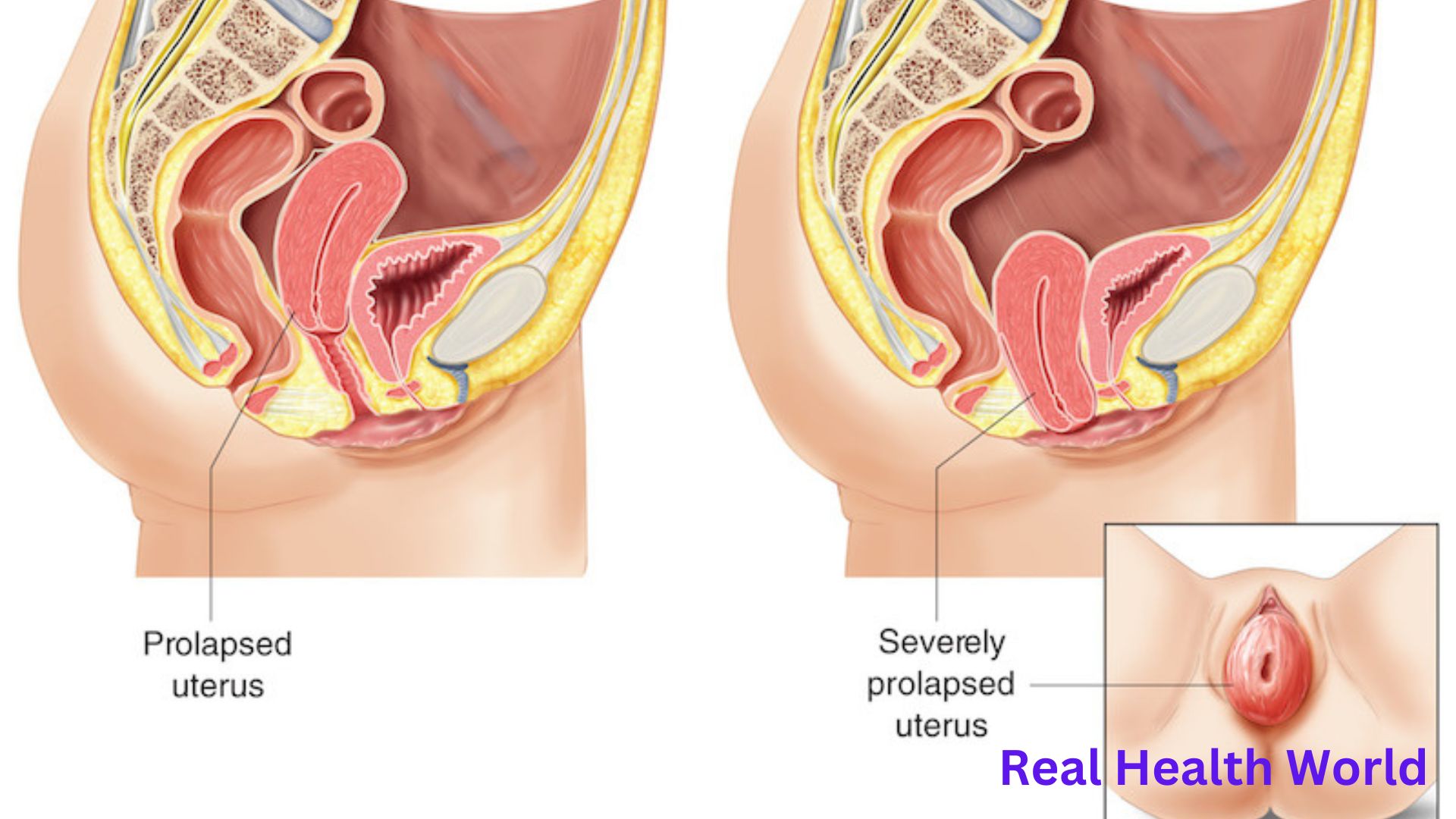Uterine displacement can occur for various reasons. The uterus is held in place by rope-like structures called ligaments. If this structure is weakened for any reason, the position of the uterus is not normal. comes down
Reasons: If the ligaments are congenitally weak, frequent births in a short period of time, if the pressure on the lower abdomen increases for some reason, if the inexperienced midwife presses repeatedly in an attempt to force the birth before the cervix is fully opened due to labor pain, if the uterus is torn at the bottom during delivery, If the baby’s head is stuck in the birth canal or if the labor is prolonged (more than 12 to 16 hours), the ligament becomes loose.
After puberty, i.e. after menopause, the ligaments automatically loosen due to the decrease in the hormone estrogen; This already causes some displacement of the uterus. A weak ligament is often not a problem. However, long-term constipation, cough, tumors in the abdomen or uterus, polyps in the cervix, urinary retention during labor or after labor, heavy work after delivery, if proper care is not taken after delivery, the uterus can descend. Malnutrition can also weaken ligaments.
Symptoms: Uncomfortable feeling. Something is coming out of the menstrual tract or the area will feel full. Back pain may occur while standing. Frequent urination, feeling of incomplete urination, often continuous urination, if the sphincter is relaxed. Constipation, feeling of incomplete bowel movement. White, purulent or reddish discharge may occur.
Treatment: For treatment, it is necessary to determine the degree of displacement of the uterus, that is, in which position the uterus is. Surgery is the appropriate treatment. However, the surgery is done considering any degree of prolapse, whether the child is needed at all or not. Otherwise ‘Ring Peshari’ is worn casually. It avoids complications.
Prevention: Our country is plagued with superstitions. Due to lack of education, the society as well as the family are ashamed of such difficulties, without taking the advice of the doctor, they make life miserable by using drops, sprinkles, herbal medicines. But if you are a little aware, you don’t have to bear this suffering. Prevention is not possible if the ligament is congenitally lax. Some things can be prevented if observed.
* Prevent frequent childbirth by using birth control.
* Care should be taken that labor pains do not last long. Delivery should be done by a trained midwife-nurse.
* No heavy work can be done in maternity condition or for six months after delivery.
* Constipation, urinary retention, tumors or discomfort in the birth canal should be seen by a doctor. Light exercise should be done after delivery.
Author: Head of Department, Department of Gynecology and Obstetrics, Enam Medical College and Hospital, Savar, Dhaka.
What can you do if your uterus has dropped?
- Strengthen the muscles that support pelvic structures.
- Eat high-fiber foods and drink lots of fluids to avoid constipation.
- Avoid bearing down during bowel movements.
- Avoid heavy lifting.
- Control coughing.
- Lose weight if you’re overweight.
- Quit smoking.
How do you push your uterus back in place?
doing Kegel exercises, which are pelvic floor exercises that help strengthen the vaginal muscles. wearing a pessary, which is a device inserted into the vagina that fits under the cervix and helps push up and stabilize the uterus and cervix.
How serious is a dropped uterus?
A prolapse is not life threatening, but it can cause pain and discomfort. Symptoms can usually be improved with pelvic floor exercises and lifestyle changes, but sometimes medical treatment is needed.
How do you fix a prolapsed uterus without surgery?
The two non-surgical options for prolapse are pelvic floor muscle training (PFMT) and a vaginal pessary. PFMT can be effective for mild prolapse but is usually not successful for moderate and advanced prolapse. The main alternative to surgery for prolapse is a vaginal pessary.
Is walking good for prolapsed uterus?
What type of exercise is best for pelvic organ prolapse? Aerobic exercises three to five times a week (walking, cycling, swimming etc). Aerobic exercise helps your cardiovascular system, muscles, tendons and ligaments to stay strong and will also help you maintain to the correct weight (BMI) for your height and age.
Can you feel a prolapsed uterus with your finger?
Insert 1 or 2 fingers and place over the front vaginal wall (facing the bladder) to feel any bulging under your fingers, first with strong coughing and then with sustained bearing down. A definite bulge of the wall under your fingers indicates a front vaginal wall prolapse.
Read more from Real Health World
